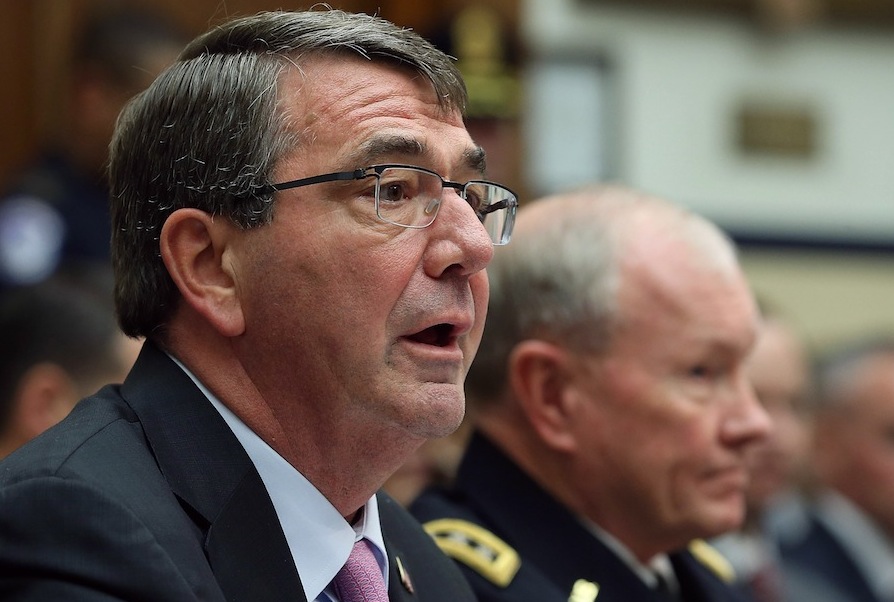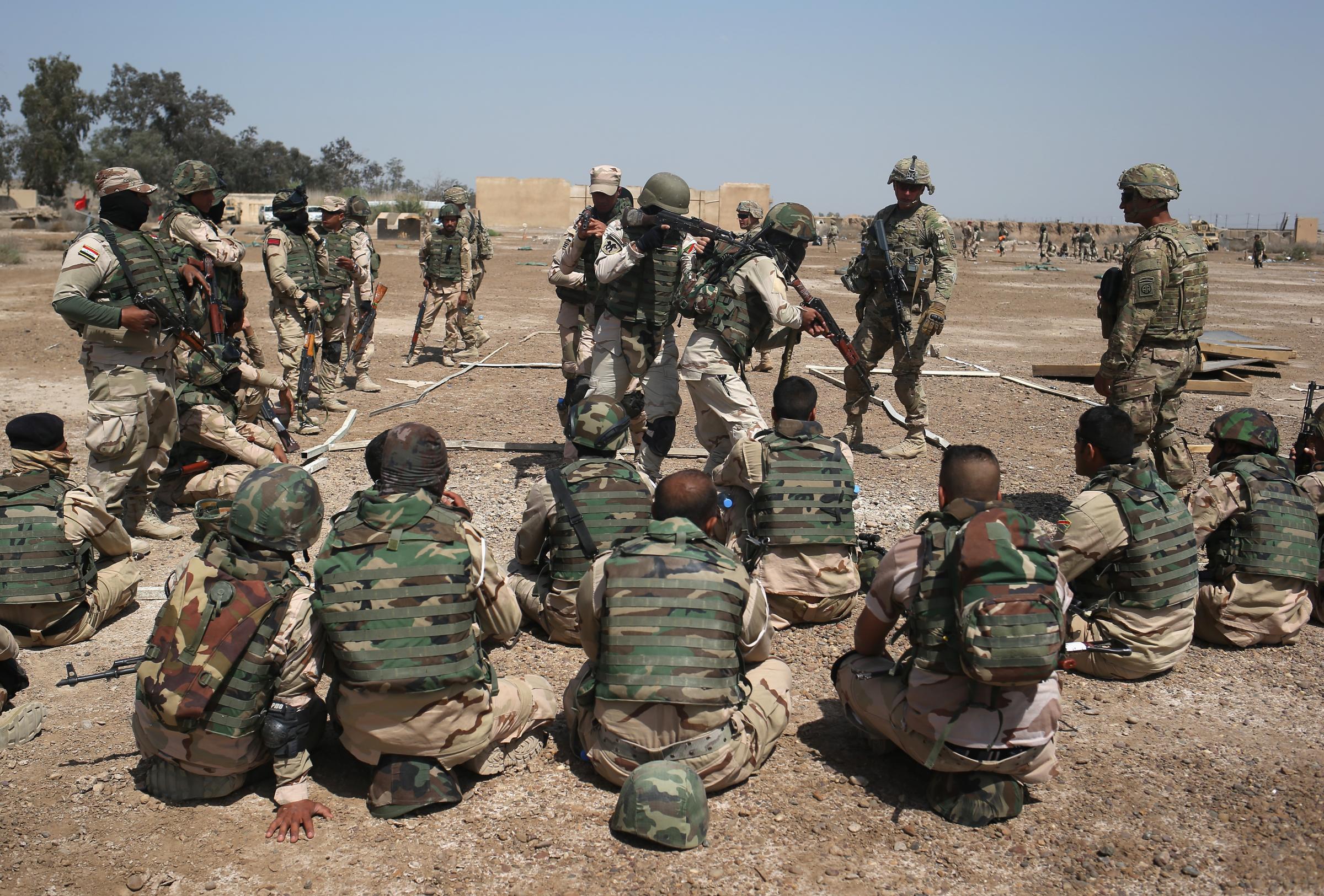
Body counts are notoriously inaccurate—and a poor yardstick for measuring progress on the battlefield. Nonetheless, a top U.S. official recently trumpeted the fact that the U.S.-led alliance has killed “more than 10,000” fighters of the Islamic State of Iraq and Greater Syria over the past year. That’s despite the fact that the alliance has regained little territory from the wide swaths of Iraq and Syria ISIS has gobbled up since 2013.
But there is another body count when it comes to assessing the war on ISIS that is far more accurate—and far more telling: the Pentagon had expected to train about 24,000 Iraqis to fight ISIS by this fall, but will only manage to train 7,000, Defense Secretary Ashton Carter told the House Armed Services Committee on Wednesday. (He fattened up the bottom line by adding that the U.S. also had trained “2,000 counter-terrorism service personnel”.)

Even under Carter’s plumped-up number, the U.S. military will have achieved only 38% of its training target by this fall. Such a limited goal, and the inability to achieve it, contrasts with the Iraqi security forces that existed when U.S. troops left Iraq in 2011. The U.S. military left behind a 350,000-strong Iraqi army and a 450,000-strong national police force that “was assessed as a relatively well-trained and disciplined force,” according to a recent U.S. report. But it didn’t last. “The soldiers that we helped to train, when [ISIS] came in, they basically took the uniforms off and ran,” Rep. Jim Langevin, D-R.I., told Carter and Army General Martin Dempsey, chairman of the Joint Chiefs of Staff.
This good-guy-trained body count is more important than the bad-guy-killed body count, for several reasons:
— It highlights a strong Iraqi reluctance to get involved in the fight against the Islamic State. “Our training efforts in Iraq have thus far been slowed by a lack of trainees—we simply haven’t received enough recruits,” Carter said. “As I’ve told Iraqi leaders, while the United States is open to supporting Iraq more than we already are, we must see a greater commitment from all parts of the Iraqi government.”
— It suggests the U.S has had poor intelligence about just how willing the Iraqis are to fight. While Dempsey called the training effort the “centerpiece” of the U.S. strategy, only now is the U.S. getting serious about training Sunni fighters, largely located in western Anbar Province. “We determined that our training efforts could be enhanced and thus are now focusing on increasing participation in and throughput of our training efforts, working closely with the Iraqi government and stressing the focus on drawing in Sunni forces, which, as noted, are under-represented in the Iraqi security forces today,” Carter said.
—It calls into question the placement of the four U.S. training camps currently inside Iraq. The U.S. is dispatching 450 more trainers to Anbar to operate a fifth camp. “The numbers [of trainers] are not as significant as the location,” Carter said. “It’s in the heart of Sunni territory, and I think it will make a big difference in the performance of the train-and-equip program as regards recruiting Sunni fighters.” In fact, he predicted the new camp will be generating new Sunni fighters to battle ISIS within “weeks.”
—It confirms that much of the eight years and $25 billion training Iraqi security forces during the first such effort accomplished little. “At a personal level, the most frustrating part of going back to Iraq in February was seeing so much of what we had fought for and achieved during the surge really gone to waste,” said Rep. Seth Moulton, D-Mass., who served four tours in Iraq as a Marine.
—It reinforces Carter’s observation last month that the Iraqi forces driven out of Ramadi, Anbar’s capital, lacked the “will to fight.”
So long as the Iraqis lack even the will to sign up to fight, the “long, hard slog” that Defense Secretary Donald Rumsfeld predicted for Iraq 12 years ago shows little sign of speeding up.
More Must-Reads From TIME
- The 100 Most Influential People of 2024
- Coco Gauff Is Playing for Herself Now
- Scenes From Pro-Palestinian Encampments Across U.S. Universities
- 6 Compliments That Land Every Time
- If You're Dating Right Now , You're Brave: Column
- The AI That Could Heal a Divided Internet
- Fallout Is a Brilliant Model for the Future of Video Game Adaptations
- Want Weekly Recs on What to Watch, Read, and More? Sign Up for Worth Your Time
Contact us at letters@time.com